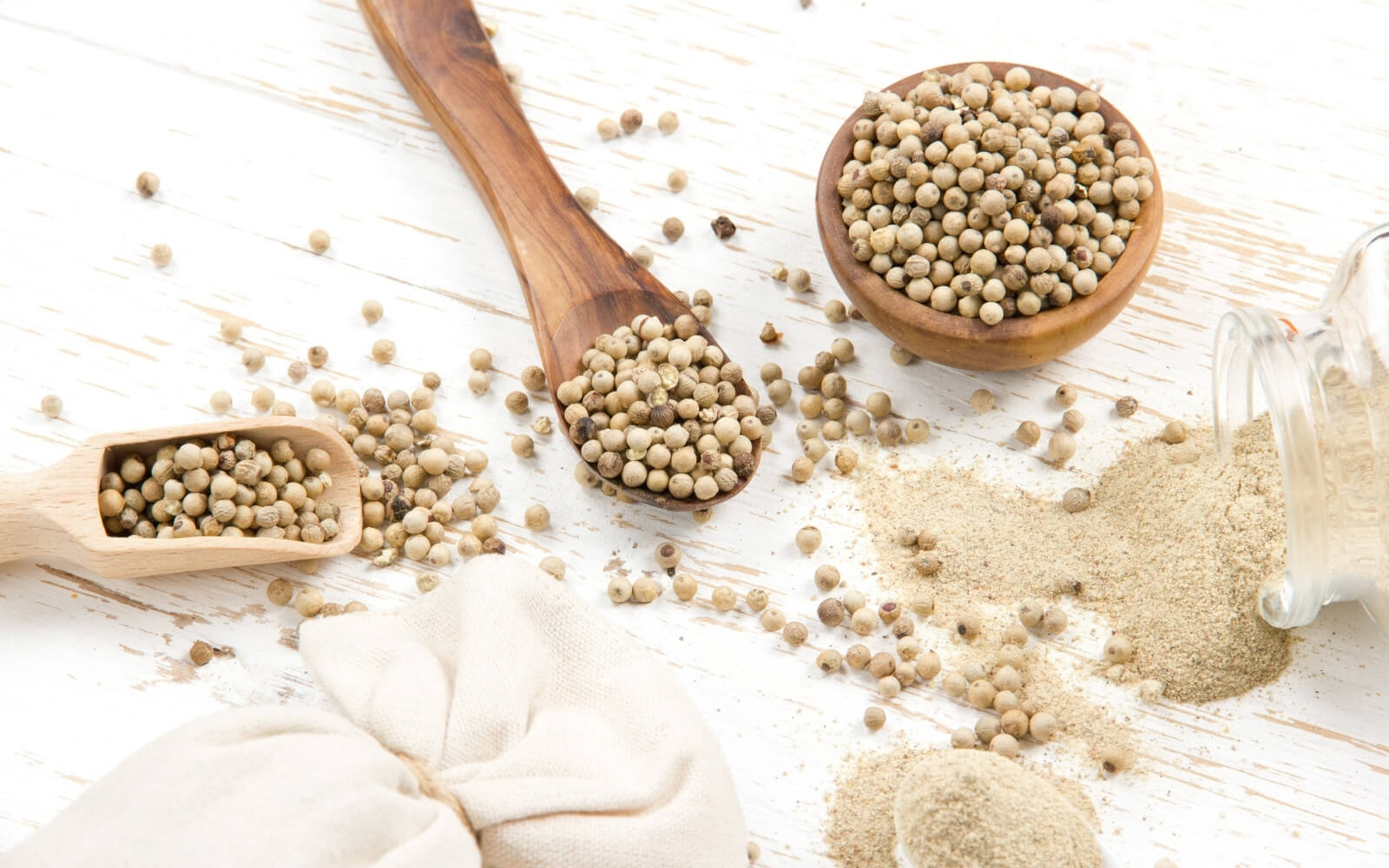How Long Does Valerian Root Stay In Your System?

Valerian root is an herb native to Asia and Europe and has been around since ancient times to help increase relaxation, reduce anxiety, and improve sleep quality and duration. In this article, we answer the question, "how long does valerian root stay in your system," and we also cover the use of valerian root for sleep and anxiety, dosing, as well as the potential side effects.
What Is Valerian Root?
Valerian root contains a number of compounds and antioxidants that help promote sleep, ease restlessness, and reduce anxiety. Antioxidants are compounds that inhibit damage to cells by harmful free radicals. Valerian root contains the antioxidants hesperidin and linarin which have sleep-enhancing and calming properties.
Valerian root has a unique interaction with GABA, a chemical messenger that helps regulate nerve impulses in your brain and nervous system. Studies have shown that low levels of GABA are related to chronic stress, anxiety, and low-quality sleep. Valerian root, more specifically, valerenic acid has shown the ability to inhibit the breakdown of GABA in the brain resulting in feelings of calmness and decreased feelings of stress and anxiety.
Valerian Root Dosage
Common doses of valerian root range from 300 mg to 900 mg taken once daily or divided and taken twice daily. Common uses of valerian root include for stress, sleep, and hot flashes.
Valerian Root For Sleep Dosage
When used for sleep, most researchers suggest using 400-900 mg. For better sleep results, take it 30 minutes to 2 hours before bedtime. When paired with other botanicals like in Easy Sleep, 100 mg of valerian root seems to be the optimal amount.
Valerian Root For Anxiety Dosage
For depression and anxiety it is better to take a smaller dosage of valerian. This means a dose of 120-200 mg three times per day at mealtimes. Taking much higher doses may result in daytime drowsiness. Valerian root, as you will read more about throughout this article, has been shown to help treat anxiety in multiple clinical studies as well as reduce stress levels.
For example, one 2002 study that included 36 patients with generalized anxiety disorder found that just 50 mg of valerian root given three times a day for four weeks was enough to significantly reduce anxiety levels compared to the placebo group.
How Long Does Valerian Root Take To Work?
Unlike ashwagandha (which usually needs to be taken for up to 6 weeks before the effects are fully felt), valerian can often be felt within the first 2 hours after taking.
How Long Does Valerian Root Stay In Your System?
There are various compounds present in valerian and each are metabolized at different rates. Nonetheless, clinical studies indicate that valerian root can stay in your system for 4-6 hours.
Is Valerian Root Safe?
Valerian root has very little side effects and interactions with other supplements or medications. The U.S. Food and Drug Administration (FDA) recognizes valerian root as "generally safe."
Valerian Root Benefits
The name "valerian" is derived from the Latin verb "valere" which means "force" or "to be strong." Valerian root is used to help treat a variety of conditions including:
- Sleeplessness
- Stress
- Anxiety
- Depression
- Symptoms of Menopause
- Sleep Insomnia
Valerian root is widely available as a supplement and can be taken as a capsule or consumed as a tea in liquid or dried powder form.
Valerian Root For Anxiety
Recent research suggests that valerian root may help reduce stress and anxious feelings associated with stressful situations. In a double-blind, placebo-controlled, randomized, balanced, crossover experiment with 24 healthy adults given challenging mental tasks found that a combination of valerian root and lemon balm reduced anxiety levels.
Additionally, studies show that valerian root may also benefit those with chronic conditions such as generalized anxiety disorders and or obsessive-compulsive disorder (OCD).
Valerian Root OCD
In a separate eight-week long double-blind controlled study that included 31 outpatients with OCD, found that those who took valerian root extract on a daily basis showed a "significant reduction in obsessive and compulsive behaviors" when compared to the control group with no difference in observed side effects. Similar studies have been done that suggest children who have trouble maintaining focus or display hyperactive behaviors may also find benefit in valerian root extract supplementation.
- A controlled, double-blind study that included 169 elementary school children was done to see if the combination of lemon balm and valerian root would be able to improve focus, hyperactivity, and impulsiveness. The children that supplemented with lemon balm and valerian root extract displayed a 50% improvement in symptoms compared to those who did not.
Valerian Root For Sleep
According to the Cleveland Clinic sleep disorders are extremely common, affecting nearly 70 million Americans per year. Sleep disorders are characterized as abnormal sleep patterns, including lack of sleep and daytime sleepiness. This includes:
- Restless leg syndrome
- Narcolepsy
- Night terror(s)
- Insomnia
- Obstructive sleep apnea
- Sleepwalking
Multiple studies suggest that valerian root supplements may effectively reduce the amount of time it takes to fall asleep and improve sleep quality and duration as well. If you are struggling to get a good night's rest try using valerian root for sleep.
How Much Valerian Root For Sleep?
A controlled, double-blind, placebo-controlled study of 27 young and middle-aged adults with sleep disorders found that supplementing with 400 mg of valerian root produced the following results:
- 24 individuals reported improved sleep
- 12 reported "perfect sleep"
- Overall, nearly 89% of participants reported improved sleep
Another separate study in adults with insomnia found that a single dose (200 mg) of valerian root allowed them to achieve deep sleep 36% faster than usual. Time spent asleep also increased significantly.
Health Benefits of Valerian Root
Valerian root is widely used for sleep, depression, and to ease feelings of anxiety. There are other health benefits of valerian root. This includes:
- Menopause: One study in particular in menopausal women found the participants experienced significant improvements in symptoms of menopause when supplementing with valerian root. For example, the participants experienced a significant reduction in hot flash severity as well as hot flash frequency.
- Restless legs syndrome: One study that was eight weeks in duration found that taking 800 mg per day of valerian root extract improved symptoms of restless legs syndrome and decreased daytime sleepiness.
- Parkinson's disease: A study in mice with Parkinson's disease concluded that valerian root led to decreased inflammation, improved behavior, and an increase in antioxidant levels.
Valerian Root Side Effects
As Healthline reported, "Valerian has been shown to be remarkably safe for most people and has very little side effects. Valerian does not appear to affect mental or physical health when used as directed." Unlike many prescription-based anti-anxiety or sleep medication on the market today, valerian doesn't cause problems with dependency from regular use.
Valerian Root Interactions
Valerian is broken down in the liver by an enzyme called cytochrome P450 (CYP450). Therefore, it is possible it could interfere with medications that are also broken down by CYP450. These medications include:
- Allergy medications (fexofenadine) like Allergra
- Cancer medications such as Camptosar (irinotecan)
- Antifungal drugs like Sporanox (itraconazole)
- Statin drugs such as Lipitor (atorvastatin) or Mevacor (lovastatin)
Does Valerian Root Work?
Valerian root is one of the most effective, time-tested, all-natural options to reduce anxiety, symptoms of depression, and improve sleep quality and duration. The general consensus is "yes, valerian root works and works well."
Valerian Root Sleep Aid
Easy Sleep is an all-natural, non habit-forming sleep supplement developed by doctors and neuroscientists to deliver better sleep results. Easy Sleep is designed with an optimal blend of melatonin (2.5 mg), and a unique blend of stress-relieving botanicals like valerian root extract, passionflower, and magnesium citrate to help you sleep easy and wake up without next-day grogginess. You can shop Easy Sleep here.

Summary
Valerian root extract is an herb native to Asia and Europe and has been around since ancient times to help increase relaxation, reduce anxiety, and improve sleep quality and duration. The name "valerian" is derived from the Latin verb "valere" which means "force" or "to be strong."
What Is Valerian Root Used For?
Valerian root contains a number of compounds and antioxidants that help promote sleep, ease restlessness, and reduce anxiety. It has a unique interaction with GABA, a chemical messenger that helps regulate nerve impulses in your brain and nervous system. Valerian root has shown the ability to inhibit the breakdown of GABA in the brain resulting in feelings of calmness and decreased feelings of stress, anxiety, and depression.
It is estimated that roughly 30% of people experience insomnia or some form of sleep difficulty. In other words, 70 million Americans have difficulty falling asleep, staying asleep, or even achieving high-quality restorative sleep. Multiple scientific studies suggests that consuming valerian root for sleep may reduce the amount of time it takes to fall asleep as well as improve the quality of deep sleep.
Valerian Dosage
The recommended valerian root dosage amounts range from 300-900 mg. When used for sleep the recommended dosage is between 400-900 mg taken one hour before bedtime. For anxiety, stress, and depression the dosage amount is slightly lower and is between 120-200 mg taken two to three times daily.
Benefits of Valerian
In addition to treating stress, anxiety, depression, and sleep difficulties, valerian root has many other benefits. This includes:
- May ease symptoms of menopause
- Can help restless leg syndrome
- May benefits those with Parkinson's disease
Frequently Asked Questions About Valerian Root

Q: What is valerian root extract used for?
A: Medicine is made from the root of valerian root extract. Valerian is most commonly used for sleep disorders like insomnia. Valerian is also used for anxiety and to reduce the effects of stress.
Q: Is it safe to take valerian every night?
A: Studies suggests that it is safe to take valerian every night to help support sleep, reduce anxiety, and decrease stress levels.
Q: Is valerian root good for anxiety?
A: People use valerian to relieve anxiety, ease depression, and poor sleep. Valerian root has a moderate calming effect that does not usually result in sleepiness the next day.
Q: How quickly does valerian work?
A: For insomnia, valerian may be taken 1 to 2 hours before bedtime. For stress and anxiety valerian can be taken in the morning with your breakfast, coffee, or tea.
Q: Valerian root for sleep dosage?
A: The recommended dose of valerian root for sleep is 200 to 300 mg 30 minutes before bed. The recommended dosage for anxiety is generally lower than the dosage for insomnia because high doses of valerian root during the day can lead to daytime sleepiness.
Leave a comment
Comments will be approved before showing up.
Also in Ingredients

Licorice Root: Benefits, Side Effects & Dosage

Slippery Elm Bark Benefits, Side Effects & Dosage











